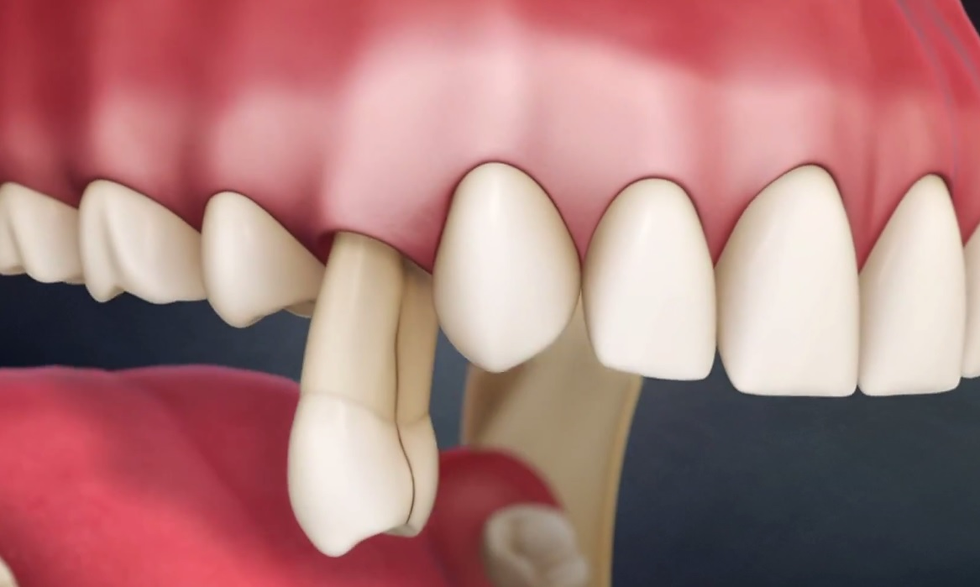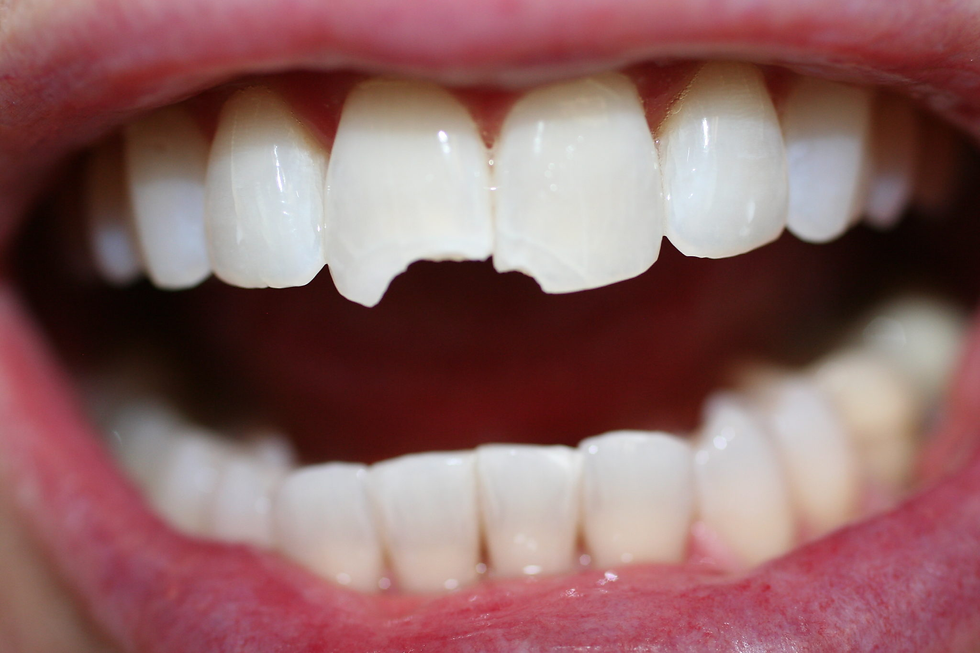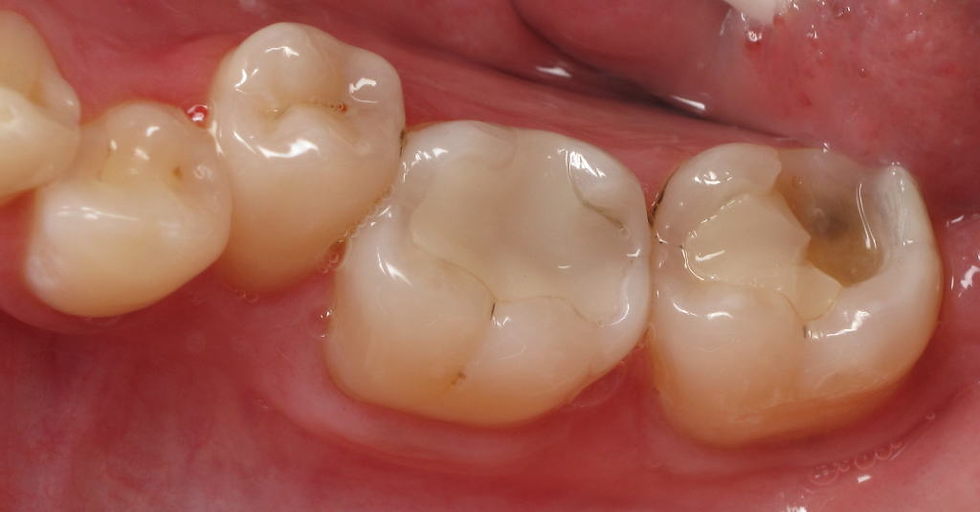Emergency Dental Care: What to Do When the Unexpected Happens
- Dr. SAYALI MOHITE
- Dec 2, 2024
- 3 min read

Introduction:
Dental emergencies can occur without warning, causing pain, discomfort, or even threatening the health of your teeth. Knowing how to respond promptly and effectively can make all the difference in preserving your oral health.
1. What is Considered a Dental Emergency?
Severe toothache or pain that disrupts daily activities.
Broken, chipped, or knocked-out teeth from trauma.
Uncontrolled bleeding from the gums, mouth, or tongue.
Swelling or abscess indicating infection.
Loose or damaged dental restorations (fillings, crowns, or bridges) that affect function or cause pain.
2. Steps to Take in a Dental Emergency:
Assess the Situation:
Determine the severity of the issue—pain, bleeding, or visible damage. If it’s severe or involves trauma, act quickly.
Toothache:

Rinse with warm saltwater and use over-the-counter pain relief. Avoid placing aspirin directly on the gums.
Knocked-out Tooth:

Rinse the tooth gently, avoid touching the root, and try to place it back in its socket. If not possible, store it in milk or a tooth preservation kit until you can see a dentist.
Chipped or Broken Tooth:

Save any broken pieces, rinse your mouth, and apply gauze to control bleeding. Use a cold compress for swelling.
Lost Filling or Crown:

Temporarily cover the area with dental cement or sugar-free gum and see a dentist as soon as possible.
Abscess or Swelling:

Rinse with warm saltwater and seek immediate care to prevent the infection from spreading.
Contact Your Dentist or an Emergency Dental Service:
Call your dentist or locate an emergency dental clinic. Provide details about the situation for proper guidance and scheduling.
3. When to Seek Immediate Professional Care:
It’s essential to seek immediate professional dental care if you experience severe or persistent tooth pain that doesn’t improve with at-home remedies, as this may indicate an underlying issue like an infection or decay. Signs of infection, such as swelling, fever, or difficulty swallowing, require urgent attention to prevent complications. Trauma resulting in significant damage to teeth or soft tissues, such as a knocked-out or broken tooth, also warrants prompt care to improve the chances of successful treatment. For a knocked-out tooth, seeing a dentist within 30-60 minutes can be critical for reattachment. When in doubt, contact your dentist or visit an emergency dental clinic to ensure your oral health and overall well-being are safeguarded.
4. Preventing Dental Emergencies:
Preventing dental emergencies starts with maintaining good oral hygiene, including brushing twice daily, flossing, and regular dental check-ups to catch potential issues early. Protect your teeth during sports or physical activities by wearing a well-fitted mouthguard to prevent trauma. Avoid chewing on hard objects like ice, pens, or popcorn kernels, which can crack or chip teeth. Stay mindful of diet by limiting sugary and acidic foods that increase the risk of decay. Address any dental discomfort promptly to prevent minor issues from escalating. With these precautions, you can significantly reduce the likelihood of unexpected dental problems.
5. The Importance of an Emergency Dental Plan:
An emergency plan ensures you have quick access to your dentist’s contact information and are familiar with nearby emergency dental clinics or after-hours services. It also helps you understand your dental insurance coverage for emergencies, preventing financial surprises. By staying prepared, you can respond promptly to dental emergencies, reducing the risk of complications and preserving your oral health. A well-thought-out plan provides peace of mind, ensuring you're ready to protect your smile when unexpected problems arise.
Conclusion:
Dental emergencies can be stressful, but knowing how to respond and seeking timely professional care can prevent complications and save your smile. By staying prepared and proactive, you can face dental emergencies with confidence and protect your oral health for the future. Remember, when in doubt, always contact your dentist for guidance—they're there to help when you need it most!
From advanced cosmetic dentistry to comprehensive oral care, our team at Fine Art Dental Clinic is dedicated to providing personalized, top-quality dental services. Whether you're considering veneers, teeth whitening, orthodontics, or any other treatment, you can trust in our expertise and commitment to your well-being.
We invite you to explore our full range of services and discover how we can help you achieve the smile you've always dreamed of. Schedule a consultation today and take the first step towards a brighter, more confident you.
Remember, your smile is our masterpiece.
- Dr. Sayali Vikram Mohite (B.D.S., C.C.A.G.D.)
Chief Dental Surgeon, Fine Art Dental Clinic





Comments